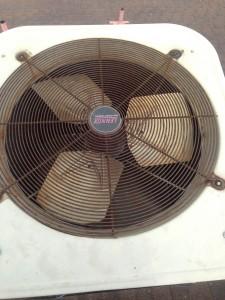Clark Heating and Cooling blog
Off or On?
 This topic is always a great debate: Do you save more energy by turning the air conditioner completely off when you leave, or do you change it to a higher setting? We at Clark Heating & Cooling have experimented with both options, just to see the effect it would have on our electric bill.
This topic is always a great debate: Do you save more energy by turning the air conditioner completely off when you leave, or do you change it to a higher setting? We at Clark Heating & Cooling have experimented with both options, just to see the effect it would have on our electric bill.
The argument for turning the air conditioner off when you leave for work or vacation usually goes as follows: “Since no one will be there, it is a waste of energy to keep my home at a moderate temperature. Why bother to have the A/C run when no one is home to enjoy it? I’ll just turn it on when I get home, and it cools off fast enough anyway.”
These are valid points, and seem to be common sense. It’s smart to turn something off when not in use! This principle applies to most things which use electricity. But what about air conditioning?
Here is our opinion on the matter:
- If you turn the A/C off, then return home and turn it back on, it will run continuously while it tries to bring the temperature down to your desired setting. This means it could run for about three to four hours straight, putting more strain than necessary on the unit and its moving parts.
- Today’s air conditioners are equipped with the latest technology, and have ‘Stage 1” and “Stage 2” cooling modes. Stage 1 runs at a lower, more continuous level, keeping the temperature stable. Stage 2 runs at a higher level (full capacity), meaning the house will cool off faster. This mode means the unit uses more electricity and works harder. If the interior temperature of your home is ninety degrees, this means Stage 2 will be forced to run for an extended period of time in order to bring the indoor temperature down.
- If the thermostat is simply set to a higher temperature while you are away, Stage 1 will click on occasionally, maintaining a stable indoor temperature and preventing the A/C unit from needing to utilize Stage 2 cooling. So yes, the unit runs more often, but at a lower, more cost-effective capacity.
The Results of Our Experiment
According to our tests, our electricity bills were about the same whether or not we turned the A/C completely off or just turned it up to a higher temperature. In this case, we feel it is best to set your thermostat to a higher temperature when you leave, rather than turning it completely off. Even though it may not dramatically affect your electric bill, this keeps your air conditioner from having to work harder than necessary. This means that excess strain will not be placed on the unit. The easier it is for the A/C to run, the longer the parts will last. Just like you don't drive your car at 5000 RPMs continually, you don't want your A/C running at full capacity for hours! What do you think? Have you ever tested this for yourself?
Like us on Facebook!
When you subscribe to the blog, we will send you an e-mail when there are new updates on the site so you wouldn't miss them.


